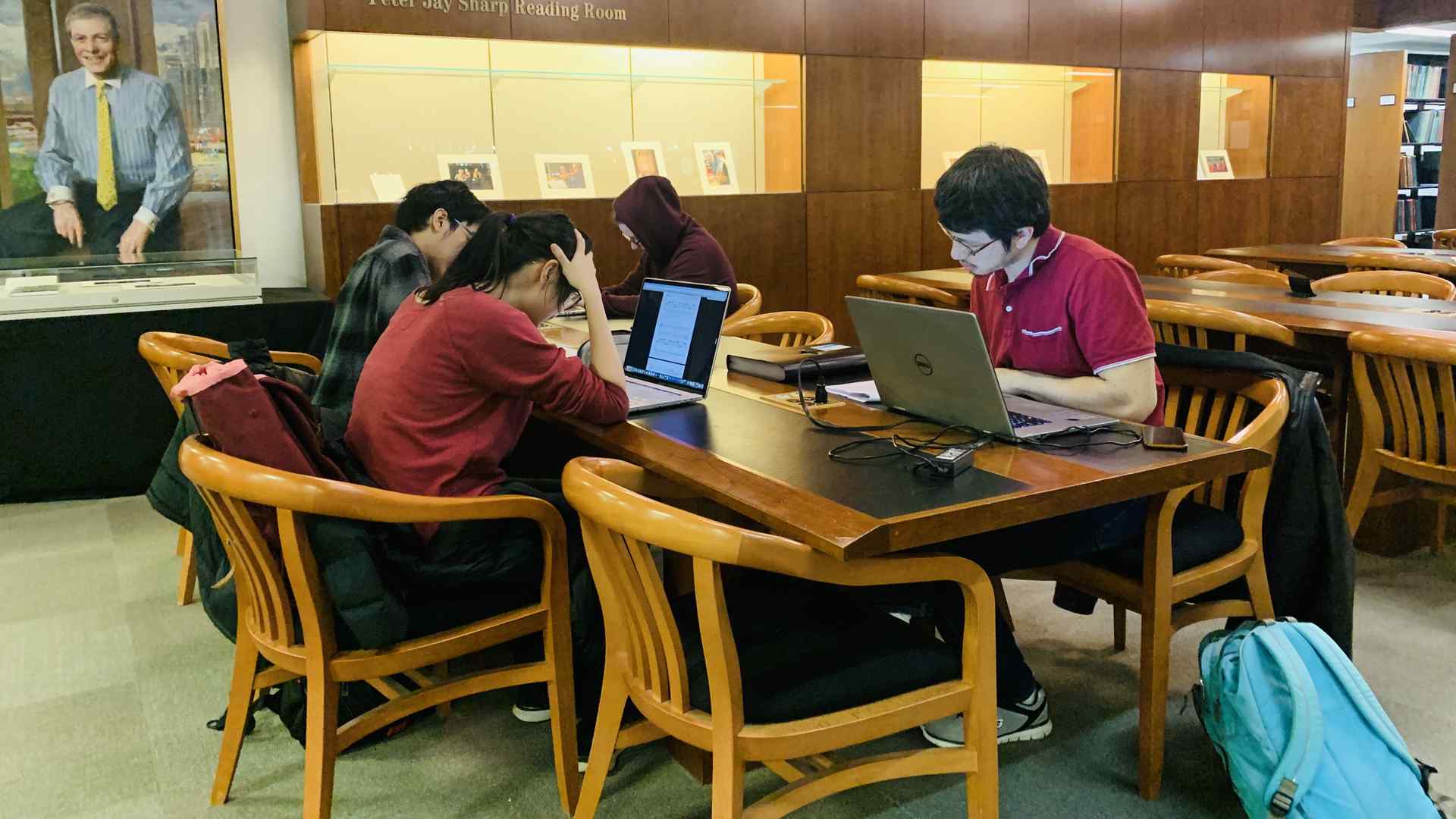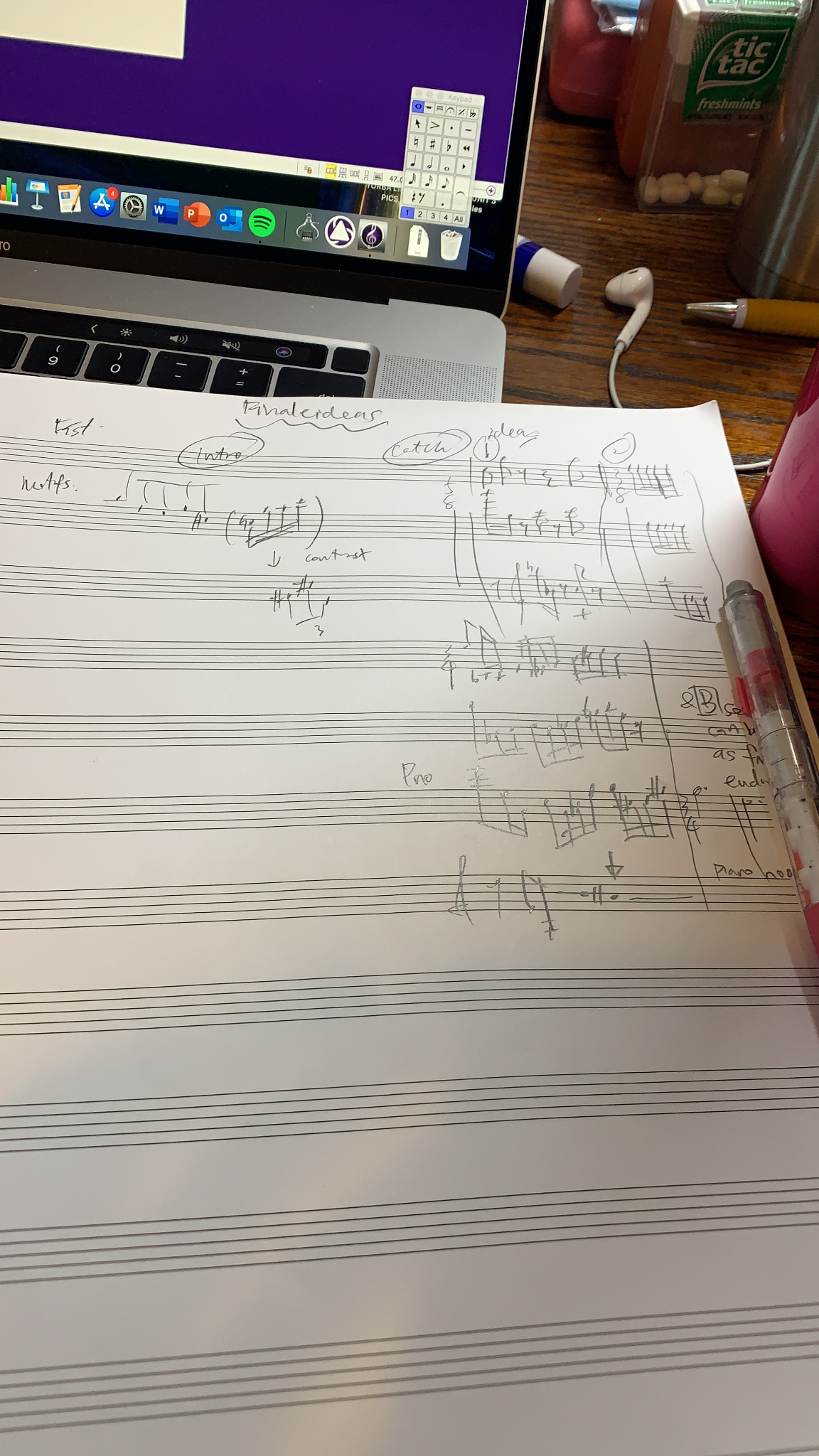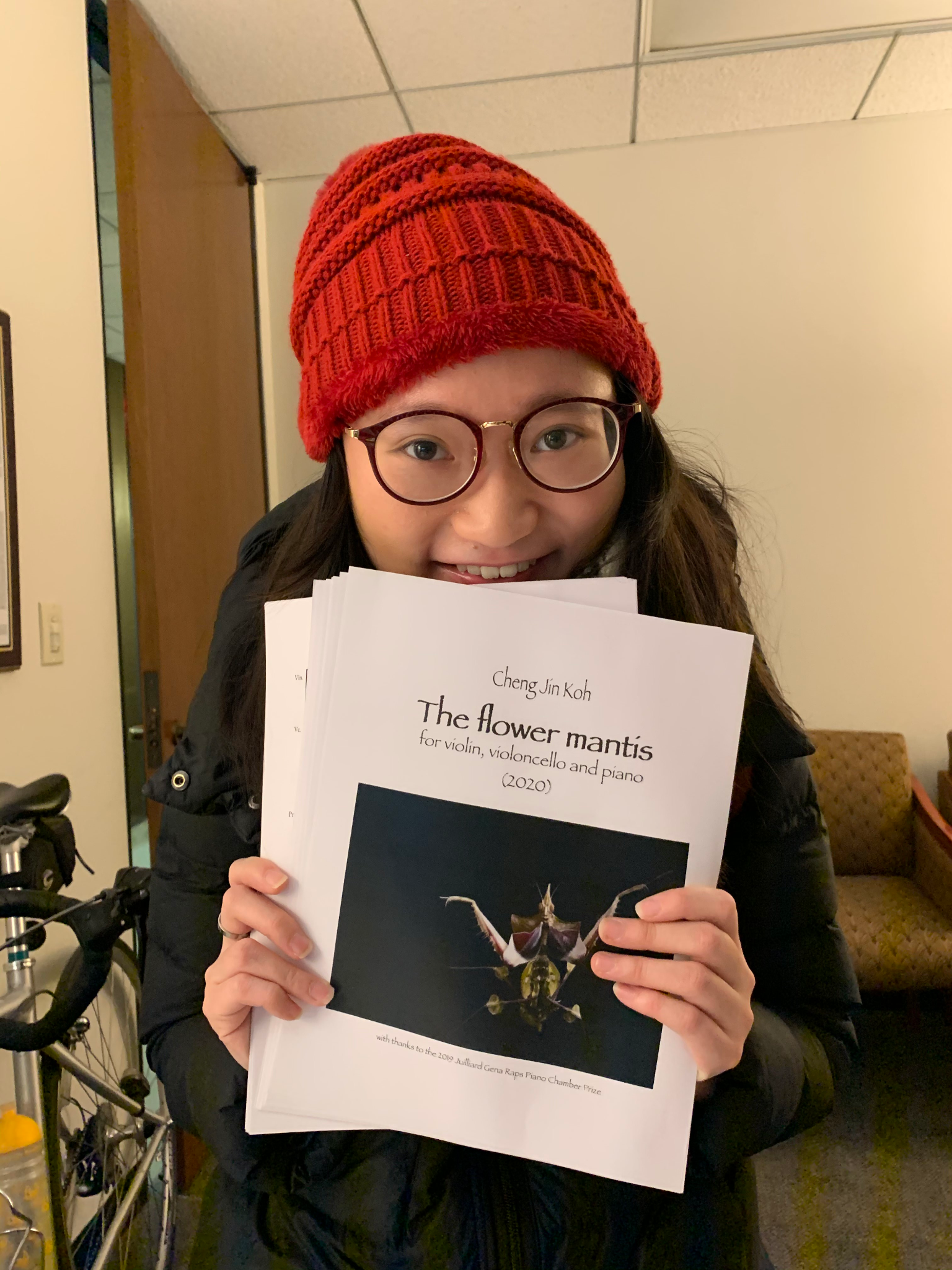
There are many who think that composition auditions are too relaxing.
It is not an unwarranted assumption – only your scores, recordings and the love for your own music are needed to convince the faculty of the conviction you possess for your own artistic craft. The auditioning composer is often able to nap peacefully on a long flight without worrying about the condition of our fingers and the mistakes we might make during our auditions. The only laborious activities in preparing for the interviews are proofreading our scores countless times, making sure they are effective and clean to read, printing them, transferring recordings onto a workable (extremely crucial) CD and voila! You may sit back, relax, and let the faculty immerse themselves in your music. Regardless of the degree you are aspiring for and your experience in composing, you may be asked a few questions about your musical choices and your composer-heroes, which the majority of you probably already have answers for.
With this context and the apparent notion that performance anxieties associated with instrumental auditions are never that obvious in each of our interviews, it is presumed that our auditions must truly be a breeze. Seeing prospective composition students walking the hallways of Juilliard with big enthusiastic smiles on our faces, cheerfully carrying folders of scores and quite-fancy laptops, and making friends and striking up small conversations outside the interview rooms are sufficient to propel the myth that we composers have the most serene and comfortable audition affair. While this scenery is indeed true to behold, what is beyond the surface must be spilled and shared in this mini, first-hand chronicle.

The years and hours of isolated practicing and the endless, grueling processes of self-correction that pianists or other performers have to shoulder are very much equivalent to what composers have to journey through in private. Writing music is a silent pursuit and often goes unnoticed. Incompletion and imperfection are two qualities that characterize our hard work until the very last measure of the pieces we write. The abstract, fragmented harmonic and sonic explorations that we devise by humming, playing on the keyboard or other instruments in a practice room seemingly pale in comparison to the the wondrous, jaw-dropping fluent display of a memorized etude or sonata played year after year.
We conjure our own music from tabula rasa, and while some have proposed that freedom in composition allows a multitude of alternatives to be accepted and thus present a more liberating exercise for the mind and soul, it is actually extremely challenging to settle on any musical deliberation that can last through multiple visits to the piece. The hardest is to write a satisfying beginning that can successfully anticipate the rest of the music and will not be regrettable. What sounds like an attractive idea may sound like a bore the next day. We may end up discarding more of what we have than what we are creating. Constant self-doubts about our music can be torturous and affect us even as we sleep or engage in trivial activities (since composing can happen anywhere, anytime). First hearings can either be very exciting or disastrous if the music is not decently played or received. Very evidently, such worrying thoughts regularly perpetuate the creativity procedures for different pieces, and they are certainly unique to every composer. Composers do face considerable psychological hardship privy only to themselves and sometimes there are no solutions to this.

Not only do we have to grapple with these inherent issues, we have to remember that the faculty are humans regardless of their bewildering abilities. Imagine sitting through two long, packed days of interviews - how exhausting that can be! They want to see your most definitive, outstanding and diverse works that you have the strongest faith in, works that demonstrate your wildest imagination and reveal all sides of your personalities. If their merits convince you, they have a great chance of convincing the faculty as well. It is a bonus if the music is impactful right from the start, since only the first few minutes of the work will be heard and judged immediately. Knowing that every second of your music counts but being unable to expect how it will be experienced by the faculty makes the composition auditions undeniably nerve-wrecking.

Composing is one of the most courageous and weariest fields I know. Don’t let fear get in your way! The music has already been written, recorded and carefully chosen for the auditions; what’s left is your own belief in the worth of your music, coupled with an open mind towards suggestions. Treat the interview as a learning experience and a lesson from amazing mentors– for me, it was a huge privilege.
Attend a student performance on campus.